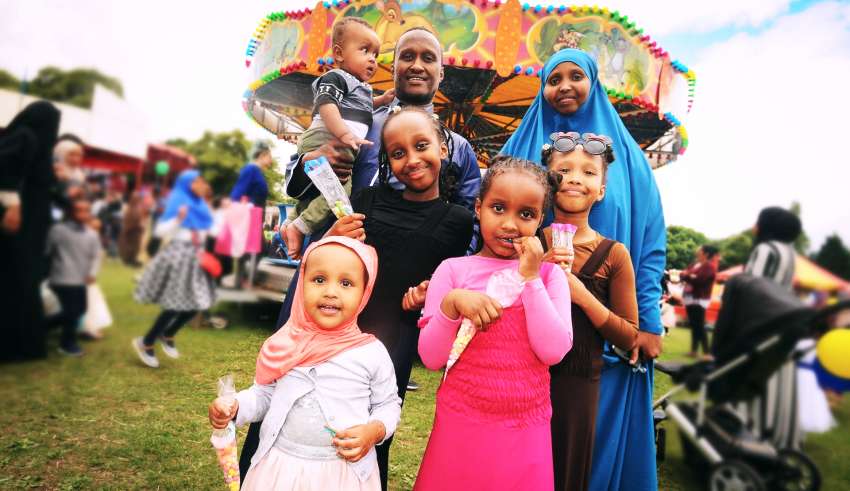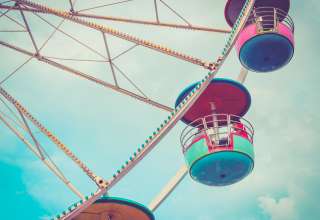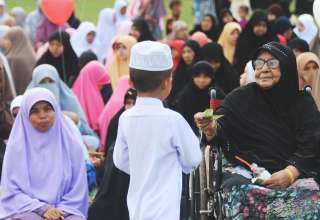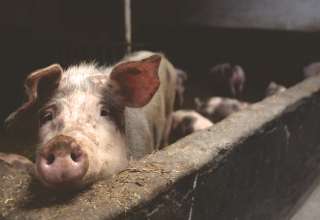
Birthdays, Anniversaries and New Year’s…Oh my! Your calendar might be overflowing with holiday after holiday, usually a couple per month. Contrastingly, you’ll only find two holidays on a Muslim’s calendar. Muslims abstain from celebrating any holiday other than Eid Al-Fitr and Eid Al-Adha. Both come right after the completion of a facet of worship.
Put Your Best Foot Forward
One of the hallmarks of Eid is to wear the finest clothing to attend Eid prayers. Parents especially, pamper their children and do their best to make sure each child has something new to wear for Eid. Even many poor families will save enough money during the year to buy something new. From Pakistan to Pennsylvania, malls and boutiques are bustling with excited Eid shoppers in the run up to Eid.
It’s also the ideal time to buy or make gifts for friends and family. One of the hallmarks of the Eid celebration is sharing it with others, even non-Muslims. Small gifts, special trinkets or a dessert are common gifts that are given to loved ones during the holiday. Decorations and lights are often hung inside and outside the home and sometimes in the streets of neighborhoods, special foods are prepared, gifts are wrapped, candies and sweet treats are put out, and the atmosphere is thick with elated spirits.
The Eid Prayer
Before heading to the mosque, most Muslims will wake up early to pray the dawn, or Fajr, prayer and eat an odd number of dates just like the Prophet Muhammad (peace be upon him) did. Taking a bath, putting on new clothing and dabbing on some cologne are also recommended in preparation for the Eid prayer. And instead of hopping into your Lexus to drive to the mosque it is encouraged to walk if possible because, it was the practice of Muhammad (peace be upon him) to walk to the prayer while reciting words glorifying Allah, loudly. The Eid prayer is performed and the Preacher offers a special sermon at the end. Most Muslims will spend time at the mosque after the prayer to greet friends and make new acquaintances!
A Family Affair
Eid is an exciting time because it allows for an opportunity to connect with relatives, friends and family, who live near and fear. Because Eid just isn’t Eid without being with loved ones, many Muslims rearrange their work or school schedules to attend family functions that usually consist of delicious foods, joking and laughing, and kids running around playing together.
During Eid Al-Fitr, relatives gather after the Eid prayer to celebrate completing a month of fasting together, and reflect on the blessings they’ve been granted from God. During Eid Al-Adha, sheep or cows are slaughtered after the Eid prayers. After the meat is prepared, families and friends get together for the feast and remember the mercy and blessings of God upon them.
Eid is an event which children anticipate and look forward to because they are the center of attention and are showered with gifts and money. The family unit is sacred in Islam and refreshing the familial bond during Eid is a noble deed.
The Lessons of Eid
The Eid holidays bring valuable lessons that serve as reminders for the rest of the year to come. Being thankful of God’s blessings and appreciating His mercy and compassion on us are important morals.
Eid Al-Fitr marks the end of Ramadan fasting which trains a Muslim to control their basic human desires, such as hunger and thirst, while increasing worship and God-consciousness. It also instills a sense of humility and understanding for the less fortunate members of society.
Eid Al-Adha highlights what it means to make a sacrifice for something you hold dear and to put your full faith in God Almighty in all of your affairs.
Quiet Reflections and Reboot Your Life
The two Eids are exceptional times to reflect on one’s life and the direction of it. It is also a time to take stock of your faith and level of worship, whether it is adequate or lacking. Since each of the Eid holidays come after the completion of one of Islam’s pillars, many Muslims are geared up and ready to go. Unfortunately, this sense of energy typically wears off as the realities of daily life once again take root.
Many Muslims use the Eid holidays as a springboard for change and growth throughout the rest of the year. Just like your laptop needs a reboot from time to time, so does your faith!
The Momentum of Eid
Most Muslims greet the Eid holidays with a greater sense of awareness of their state of Islam and a desire to keep that momentum going after just completing major acts of worship. It serves as a springboard for Muslims to continue to strive to maintain an optimal level of worship year round! Why not visit your local mosque, neighbor, or friend to join in the festivities and celebration? You’re sure to have a good time and enjoy delicious meals.













